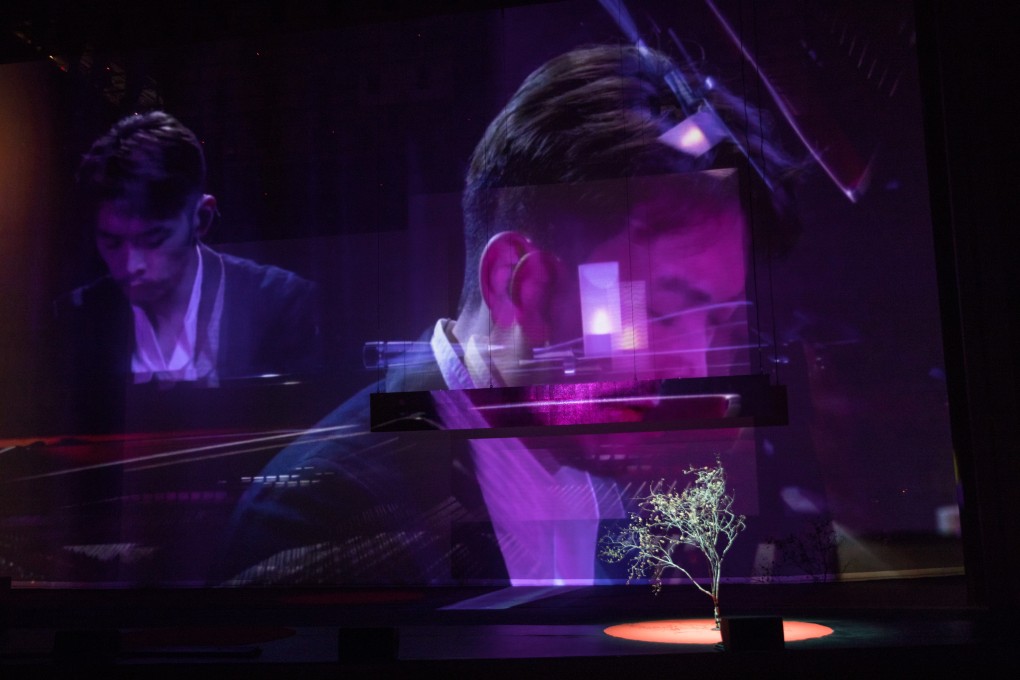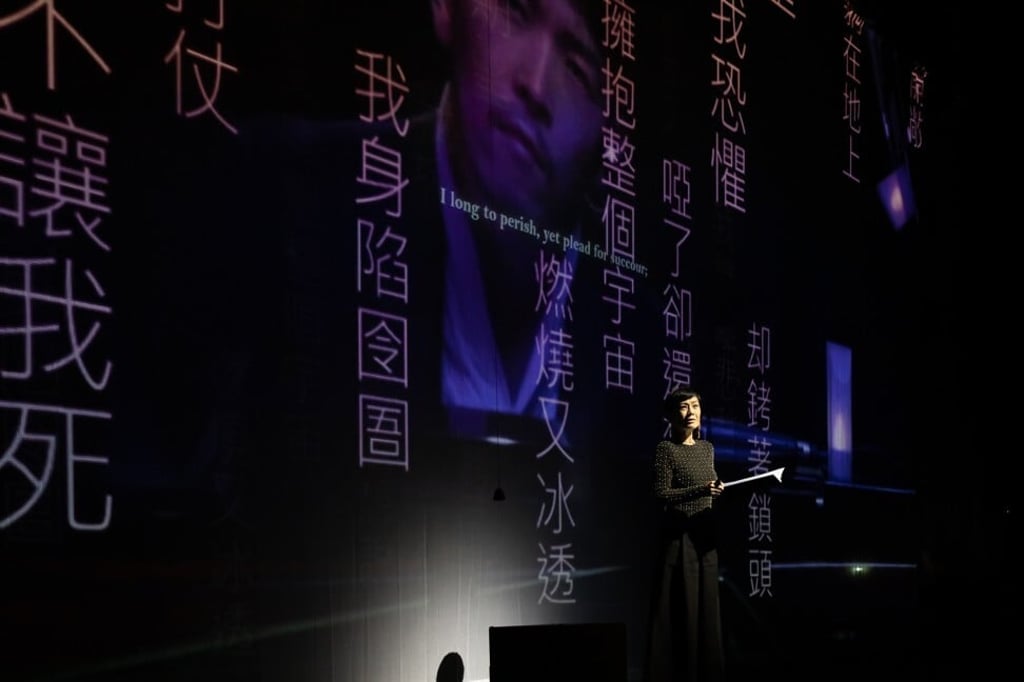Poetry, classical music and … live-streaming? How Hong Kong show Spirits was able to continue despite Covid-19 restrictions keeping pianist Yen Chun-chieh out of the city
- Pianist Yen Chun-chieh played at the Taishin Tower in Taipei, Taiwan, and Sylvia Chang Ai-chia narrated at the Hong Kong Cultural Centre’s Grand Theatre
- Despite the physical distance, the combined talents of the duo were enough that the colour and the poetic nuance of the work and storytelling were not lost

Before Spirits began on October 24, Mathias Woo Yan-wai took to the stage to explain how the Taiwanese production almost never made it to the city.
Though the technical solution added an extra, interesting dimension to the production, it presented the company with new challenges too.

Spirits is, in essence, a piano recital. The programme is made up of five classical pieces: Sergei Rachmaninoff’s piano arrangement of a movement from Felix Mendelssohn’s score for A Midsummer Night’s Dream; Maurice Ravel’s Gaspard de la nuit; and Franz Liszt’s arrangement of Saint-Saëns’ Danse Macabre; Années de pèlerinage – Deuxième année: Italie; and Lenore.
In between these classical compositions, Chang, who created the show, would recite poems – originally written in English and French and translated into Chinese by music critic Chiao Yuan-pu – on the themes of desire, longing and unrequited love.